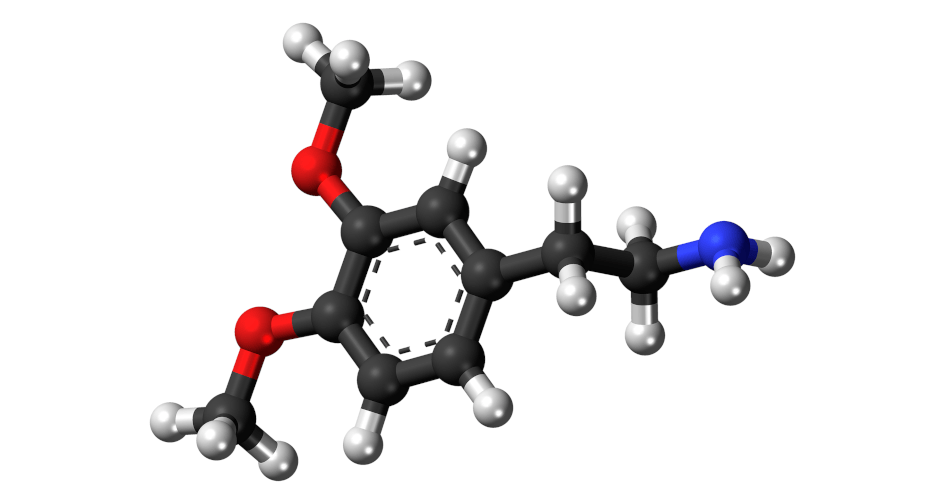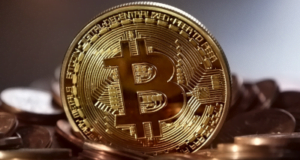Introducing a (new) gambling game to someone as an entertaining sport where they might be lucky to win more money arouses their interests. They become eager to place bets. If they win, they are happier. If they lose, they continue playing with the hope that they might win. Usually, the reward is not in the winnings but the thrill of the game. There is a certain hormone that stimulates eagerness, motivation and thrill in the brain. This hormone is dopamine. What is the relationship between gambling and dopamine?

What is Dopamine?
Dopamine is described as the chemical messenger that releases motivation or good feelings from your brain to your body when something pleasurable or rewarding happens. Gamblers, because of the thrill of the game, often get a dopamine rush whether they win or they lose. However, gambling is not the only pleasurable activity that triggers dopamine release in the body. Other pleasurable activities that trigger dopamine include, eating, shopping, food, scrolling through social media, (window) shopping, movies, exercise, sex etc.
Dopamine is not only released when there is a pleasure but also when you’re stressed or losing at a gambling session. This article shall explain this further as you read. If you have been wondering all along what motivates you to repeat a game whether you’re winning or losing, you now know it’s dopamine.

Gambling and Dopamine – Winnings
As above, engaging in pleasurable activity releases dopamine to the body. When you win thousands of dollars from a bet, you feel the highest of highs. You’re on top of the world and nothing else matters at that moment. You may even take the extra step of celebrating with alcohol or illegal drugs (not advisable, though). Sometimes, you don’t have to win before you get high. The mere fact that you’re placing a bet sends the excitement shooting up your spine.
The excitement that comes with gambling is perfectly normal and healthy. You need the motivation that comes from it to make you clear-headed and ready to take on any challenge. However, problems start to arise when dopamine becomes too much leading you to gamble on impulse.
Gambling and Dopamine – Losing
Normally, you should feel bad and quit a game when you lose a bet. Now, this is one thing a gambler never does. Instead, the urge to continue betting comes stronger. This urge fuels you with pure excitement and brings hope alive that you may be able to recover what you lose. There is absolutely no logic in this and that’s how dopamine works.
Dopamine does not use logic when releasing rewarding sensations to your body. Instead of you feeling bad about your loss or losses, it tricks your brain into making you feel like a winner even though you’re losing. So, this motivates you to go on gambling even to the detriment of your finances. This is how problem gambling kicks off. You lose, you continue to bet. You lose again and again until your whole money’s gone. If you aren’t left in debts already, dopamine may trick you into selling personal items, borrowing or even stealing to continue gambling. Still, it doesn’t stop even after you’re left in debts. You continue borrowing or stealing, as the case may be.
There, you are a certified problem gambler.
Lights, Sounds and Dopamine
Casinos and other gambling establishments understand the concept of dopamine, how it can be good for business and use it to their advantage. Have you noticed how they set up online and offline betting sites? Physical establishments are usually set up with colourful lights and board games, good music and other forms of entertainment abound. Slot machines come in colourful reels, flashing lights and various sounds. When you win a game, the “winning jingle” plays for you as the lights flash. When you lose, the losing jingle plays for you and the lights still flash.
Also, online merchants set up online gambling sites with colourful and flashing texts, various sounds and other attractions.
All of these build up the urge that sets you to gamble. You do not even need to play before you feel motivated. The lights, sounds and other attractions make you feel like a winner already. Also, they encourage you to continue betting whether you’re winning or losing. The reviews of betting sites whether genuine, exaggerated or false could also trigger the gambling urge in an individual.
Drawbacks of Dopamine in Gambling
Now that dopamine in gambling winning and losing has been discussed, this article shall explore the drawbacks of dopamine:
- Betting to the point of ruin
You may find it difficult to stop betting even when your chances of winning are low. This is because the pleasurable feeling drives you. Usually, when a gambler is jerked out of that feeling by something or someone, they start feeling guilty. Most problem gamblers admit that “something” kept making them feel good about the need to play more despite losing.
- Using illegal drugs and abusing alcohol
Gamblers who abuse alcohol and other substances have admitted to getting a high from it. Even when you know this could harm your body, you are only concerned about the present good feeling caused by dopamine. For some, drugs and alcohol trigger that high feeling they need before a gambling session.
When gamblers start to realize they’re neck-deep in debt, they use alcohol and drugs to help them escape from that reality. The dopamine rush they get from alcohol and drugs trick them into believing that all is still well.
- Stealing money
Problem gamblers who steal money have admitted to being unable to control that urge. They knew what they were doing was wrong but the thought of games gave them a rush of good feeling that made them trash morality.
- Cheating
The excitement to continue to play builds up strong until you begin to devise a means on how to cheat the house or other players. Expectedly, if you’re caught, this will not end well.
- Losing track of time
The need to continue betting even when you’re losing makes you lose track of time. The time that could have been spent on other ventures is now wasted at the table or your computer. In the end, you feel the worse for it: unmotivated, stressed out and useless.
6. Being anxious and losing sleep
Dopamine causes you to be anxious about a new gambling game. Excited by the prospect of winning, you might stay awake all night trying to devise new game strategies. Expectedly, lack of a good night’s sleep never leaves you refreshed.
How To Control Dopamine
As earlier established in this article, dopamine is a perfectly normal feeling. However, you should control it and not let it control you. Too much dopamine leads gamblers to do risky things and too little can lead to depression.
So how do you have a healthy balance of dopamine?
- Self-control
Nothing beats knowing that you’re in control of your gambling sessions. If you’re afraid that you may lose track of time, it’s best to put a timer on your wristwatch. Know when to stop gambling and leave the casino. You can also take periodic breaks from gambling. Also, apply to limit your intake of alcohol and stay away from drugs.
- Speak with a doctor
If you feel your dopamine level is too much or too little, speak with a doctor. Doctors can test your dopamine imbalance and prescribe medication to boost or reduce your dopamine level.

Dopamine challenge
The dopamine challenge made popular by Dr Cameron Sepah of Silicon Valley involves fasting from dopamine. He said this will help the body “detox” itself of pleasures that gambling and other activities provide it. According to Dr Seraph, taking a break from pleasurable activities will help the brain recover and restore itself. People believe that fasting from dopamine makes you return healthier and more focused.
However, many scientists have called this a fad and state that it is not possible to fast from dopamine no matter what you do.
Bottomline
You can see that there is indeed a relationship between gambling and dopamine. When you become a gambling addict, dopamine no longer releases rewarding feelings when you gamble. This is because your brain and body are now used to the gambling sessions. That’s why problem gamblers turn to other vices such as alcohol and drugs to continue to get high. It becomes easier for you to apply self-control when you realise that dopamine controls your highs and lows.



